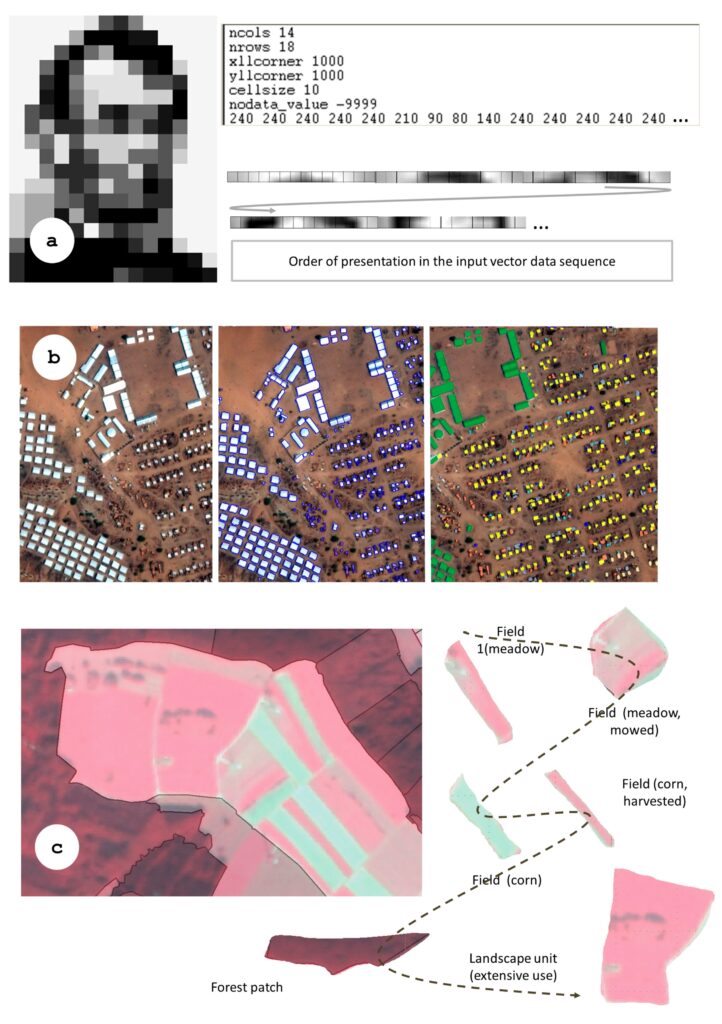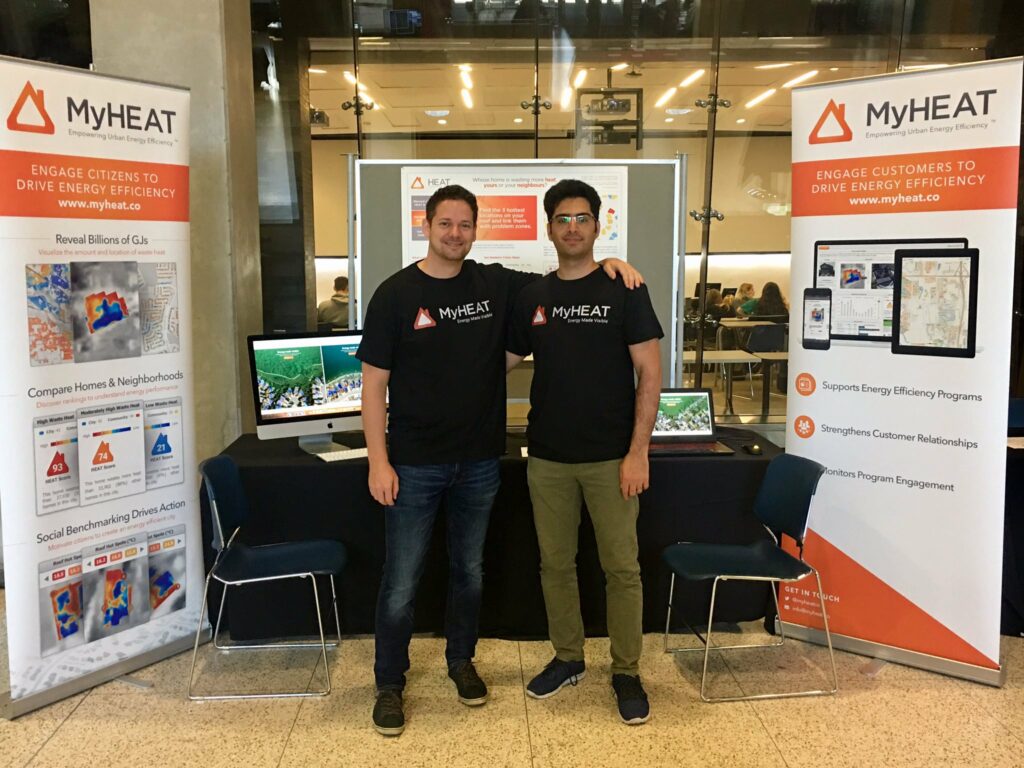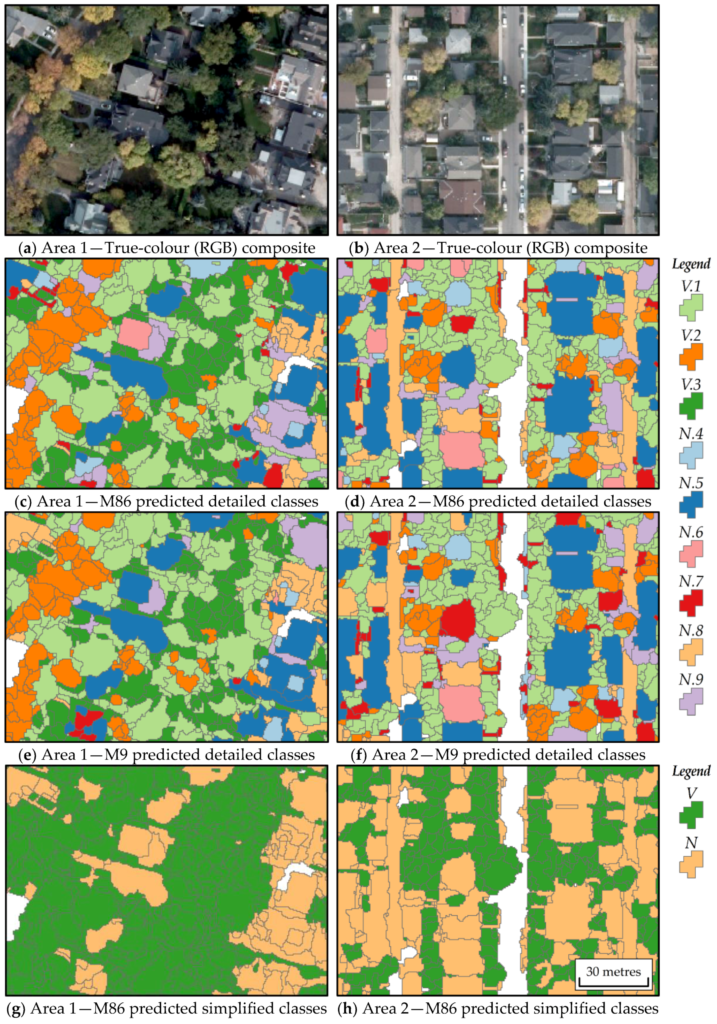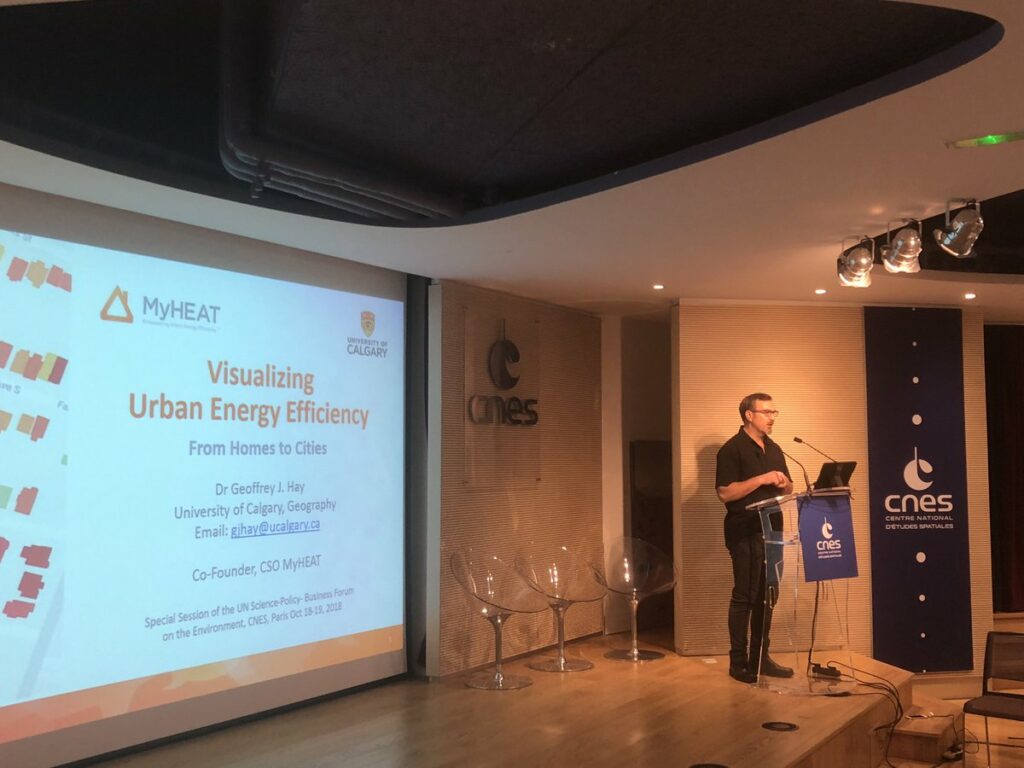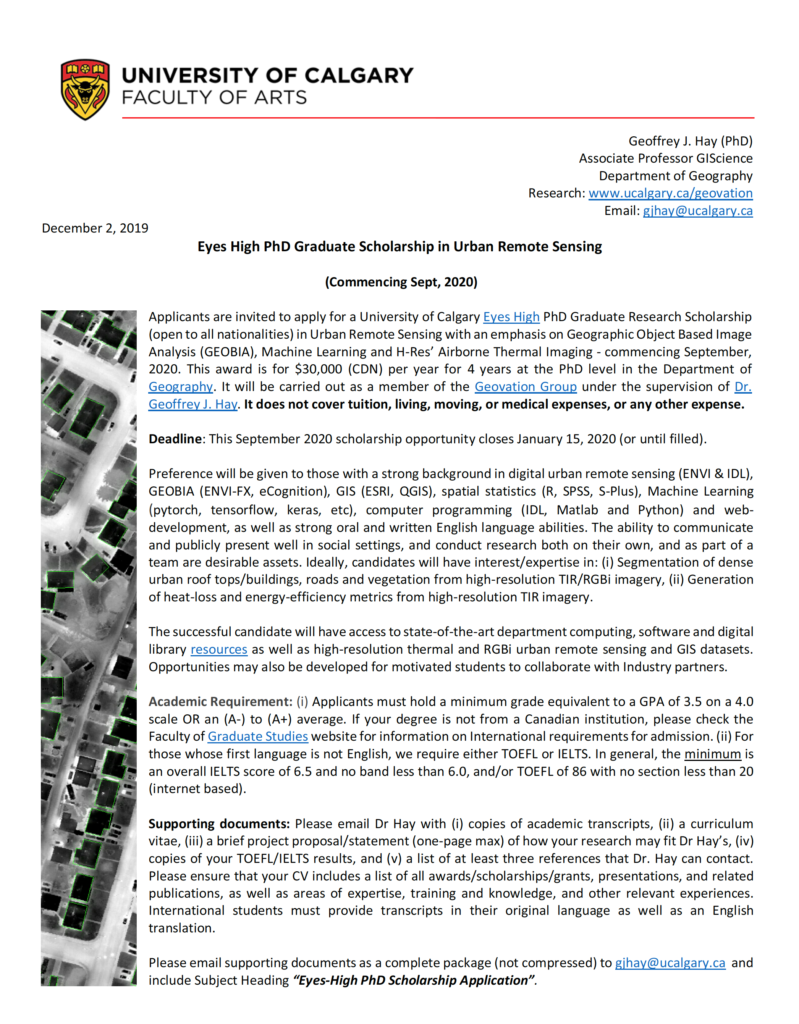
Deadline: This September 2020 scholarship opportunity closes January 15, 2020 (or when filled).
Applicants are invited to apply for a University of Calgary Eyes High PhD Graduate Research Scholarship (open to all nationalities) in Urban Remote Sensing with an emphasis on Geographic Object Based Image Analysis (GEOBIA), Machine Learning and H-Res’ Airborne Thermal Imaging.
This award is for $30,000 (CDN) per year for 4 years at the PhD level in the Department of Geography. It will be carried out as a member of the Geovation Group under the supervision of Dr. Geoffrey J. Hay
Preference will be given to those with a strong background in digital urban remote sensing (ENVI & IDL), GEOBIA (ENVI-FX, eCognition), GIS (ESRI, QGIS), spatial statistics (R, SPSS, S-Plus), Machine Learning(pytorch, tensorflow, keras, etc), computer programming (IDL, Matlab and Python) and web-development, as well as strong oral and written English language abilities. The ability to communicate and publicly present well in social settings, and conduct research both on their own, and as part of a team are desirable assets. Ideally, candidates will have interest/expertise in: (i) Segmentation of dense urban roof tops/buildings, roads and vegetation from high-resolution TIR/RGBi imagery, (ii) Generation of heat-loss and energy-efficiency metrics from high-resolution TIR imagery.
The successful candidate will have access to state-of-the-art department computing, software and digital library resources as well as high-resolution thermal and RGBi urban remote sensing and GIS datasets. Opportunities may also be developed for motivated students to collaborate with Industry partners.
Academic Requirement: (i)Applicants must hold a minimum grade equivalent to a GPA of 3.5 on a 4.0 scale OR an (A-) to (A+) average. If your degreeis not from a Canadian institution, please check the Faculty of Graduate Studies website for information on International requirements for admission. (ii) For those whose first language is not English, we require either TOEFL or IELTS. In general, the minimumis an overall IELTS score of 6.5 and no band less than 6.0, and/or TOEFL of 86 with no section less than 20 (internet based).
Supporting documents: Please email Dr Hay with (i) copies of academic transcripts, (ii) a curriculum vitae, (iii) a brief project proposal/statement (one-page max) of how your research may fit Dr Hay’s, (iv) copies of your TOEFL/IELTS results, and (v) a list of at least three references that Dr. Hay can contact. Please ensure that your CV includes a list of all awards/scholarships/grants, presentations, and related publications, as well as areas of expertise, training and knowledge, and other relevant experiences. International students must provide transcripts in their original language as well as an English translation.
Please email supporting documents as a complete package (not compressed) to gjhay@ucalgary.ca and include Subject Heading “Eyes-High PhD Scholarship Application”.


